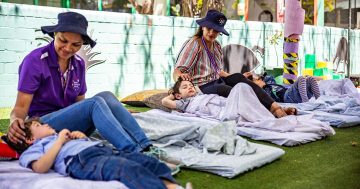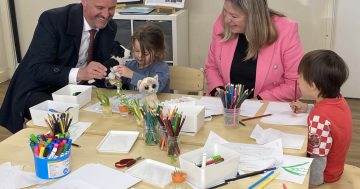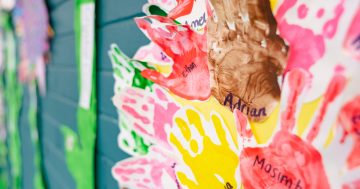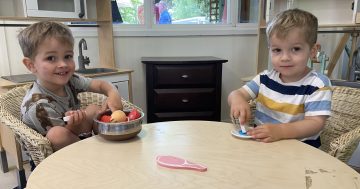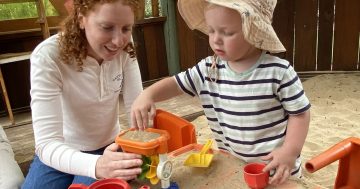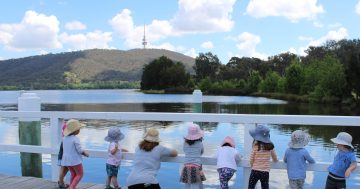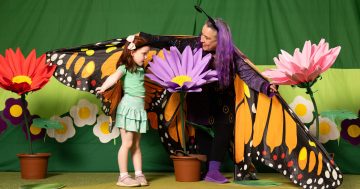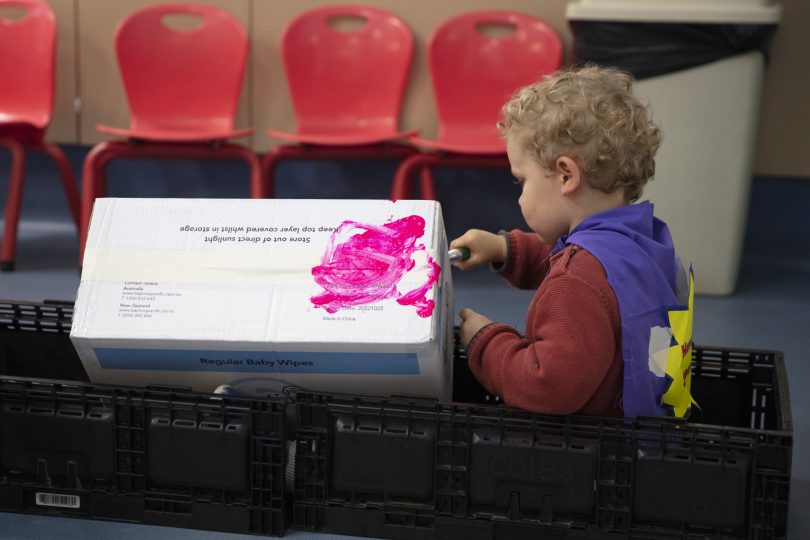
Early Childhood educators suggest making social distancing fun rather than imposing rules. Photos: Region Media.
Adjusting to any new situation can be challenging, especially when it involves the uncertainty of a global pandemic.
As adults and older children grapple with changes to the way they live, work and communicate, managing pre-schoolers can be problematic. Early childhood educators say families need to make some adjustments to ensure the youngest members of their families are kept safe and happy throughout this crisis.
Nishi Chatley, early childhood teacher and Centre Manager at Woden Community Service’s Lollipop Early Learning Centre, says parents and older siblings are significant role models for children, and staying calm and demonstrating how to be together safely will help young children adjust to this new normal.
“Little people are very attuned to the adults around them, so we need to be aware of what we convey to them both verbally and non-verbally. Parents can play an important role here by discussing the issues openly and age-appropriately with their children,” Chatley says.
“Use a friendly voice, be calm and watch your body language when talking to them or around them. You can be honest and discuss facts without causing undue distress.”
Young children learn differently to older children and adults, so giving them directions may not be a successful strategy, they learn best through being shown what they need to do.
“Play, including games and songs and stories, will help them learn and understand. We have been having a lot of fun with singing songs while we wash our hands. Even very young children soon catch on. Some of our older pre-school children are now getting very matter of fact about the ‘virus’ and that we need to wash our hands and wipe things down.”
Things to try at home include handwashing games at the sink and in buckets and covering hands in paint and washing it off.
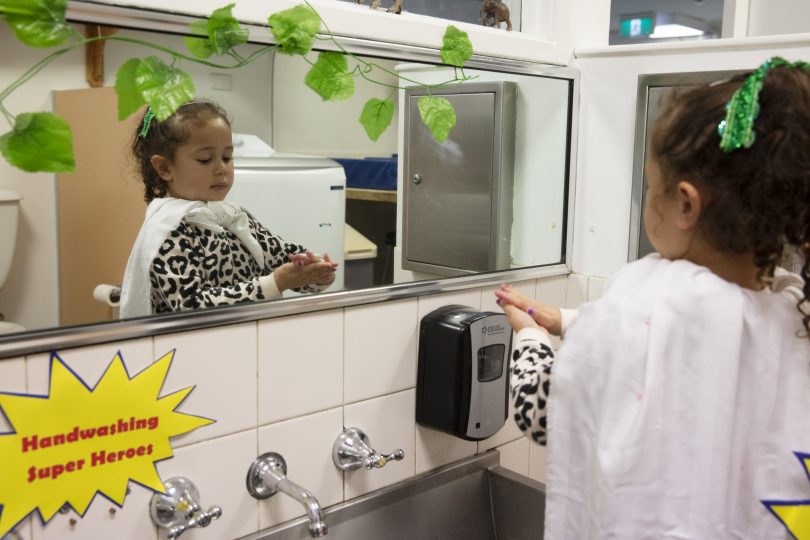
Play, including games and songs and stories will help young people learn and understand.
Chatley says the Lollipop Early Learning Centre is managing social distancing by making it fun rather than imposing rules.
“Instead of sitting at the table or on picnic rugs to eat lunch as they would normally, we now put crates out and ask the children to sit in their pretend cars. The children are still in a group and can talk with each other but they are well separated and happy to stay where they are.”
Other ideas include reading a story to a teddy instead of a friend and sitting on mats with objects in between.
“Reading books about coronavirus and puppet shows are also fun ways for children to learn and gain knowledge in a positive way. Young children can be surprisingly adaptable as long as they know why they are doing it, and it is fun, not scary,” Chatley added.
Maintaining routines will also help young children cope with the changes caused by the coronavirus pandemic.
Educators have been asking open-ended questions in order to get a sense of what the children already know and what they may be thinking about the current situation. Chatley recommends asking them how they are feeling.
“If they have some worries, be honest but be positive. For example, if they are unable to see grandparents, you can let them know why but then reassure them by telling them they will see them again, once this has all passed.”
“Our children’s happy faces during this crisis are the biggest achievement for parents, educators and teachers.”
More information on Woden Community Service Childcare.
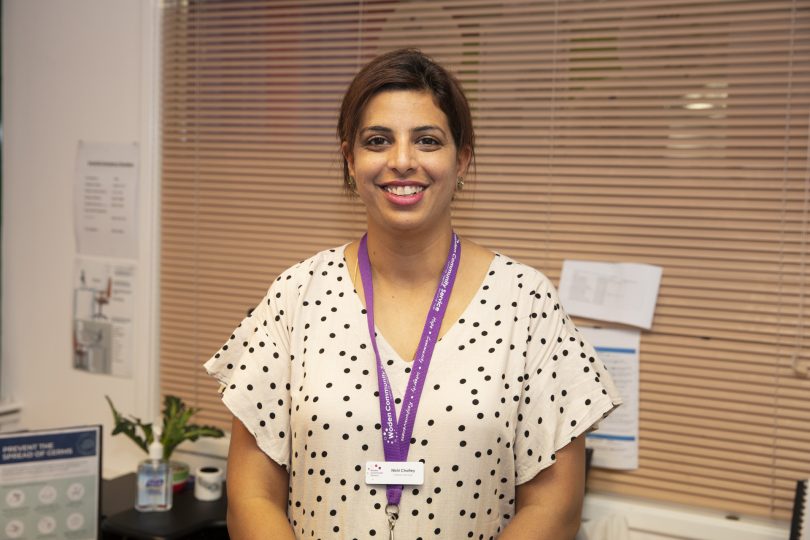
Woden Community Service’s Lollipop Early Learning Centre, Centre Manager, Nishi Chatley.












